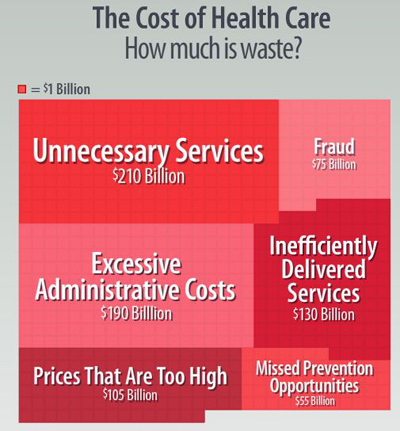
Things That Upset Employers– and What You Can Do About Them
Francois de Brantes offered a list of things that upset employers when he spoke at The Alliance Annual Meeting on Oct. 22 at the Monona Terrace.
The List of Things That Upset Employers Presented by de Brantes Includes:
- Reducing complications or other “defects” is counterproductive for health care providers because it leaves “money on the table.” As a result, those defects often are unaddressed and continue to occur, despite the fact that good people who desire to do good for patients work in health care.
- Prices vary widely in ways that are difficult to explain. A knee replacement costs $8,500 in Sweden and includes a warranty to protect against poor outcomes. The cost for the same procedure without a warranty is $22,600 for Medicare, nearly $26,000 for other payers nationwide and $40,000 in Wisconsin.
- Ninety percent of health care services are paid on a “fee for service” basis, rather than based on the health outcome for the patient.
- Consumers are encouraged to comparison shop, yet the price of health care services is typically hidden from them.
Changing the Payment System
Changing the incentives that drive the behavior of health care providers means changing the payment system. de Brantes believes payments should be driven by the value of the service, rather than the price set by the hospital.
Tactics that help change incentives for providers include:
- Reference pricing, which sets a maximum price that will be paid for a specific service. The payer then pays only that amount to all health care providers, regardless of the amount charge. Individuals who choose to use a provider that charges more than the reference price are required to pay the difference. This approach encourages individuals to use fairly priced providers and has also been found to bring down the price charged by high-cost providers.
- Bundled pricing, which sets a single price for all services provided for care for a procedure. For example, one price might cover all the care related to a joint replacement surgery, even if complications occur.
Creating better incentives would encourage hospitals and other health care providers to pursue economies of scale and other efficiencies; reduce unnecessary treatment; and ultimately reduce the cost of health care for both employers and employees, de Brantes said.
“Unless we change the way incentives work, we cannot expect any change in the industry,” de Brantes said. “You cannot persuade people to be good when they’re continually encouraged to be bad.”
Offering Better Incentives

Projects aimed at creating better incentives include The Alliance’s QualityPath™ initiative. QualityPath will identify physicians and hospitals that – when working together – meet proven standards for delivering high-quality, fairly priced care for selected procedures.
Many employers who are members of The Alliance – a cooperative of employers who self-fund their health benefits – have already pledged to support the QualityPath initiative. Employers who participate in QualityPath will design health benefits that encourage employees to choose high-quality, lower-cost health care providers.
Changing incentives will cause disruption in the health care system, de Brantes said, and some providers are likely to resist it. Yet disruption also has the potential to improve the quality of care, expand access to care and make health care more affordable for American families.
“If we do our jobs well, the entire health care system should get restructured,” de Brantes said.
Learn more about the QualityPath initiative and the employers who have already pledged their support. There’s still time to join the effort; employers who are Alliance members are welcome to take the QualityPath pledge.
[box]
Learn More about Things That Upset Employers
- Payment Reform in Health Care
- Employee-Owned Company Uses Education to Build the Bottom Line
- How to Increase the Value of Employee Health Benefits Through Self-Funding
- What Health Care Bundles Mean for You
[/box]







